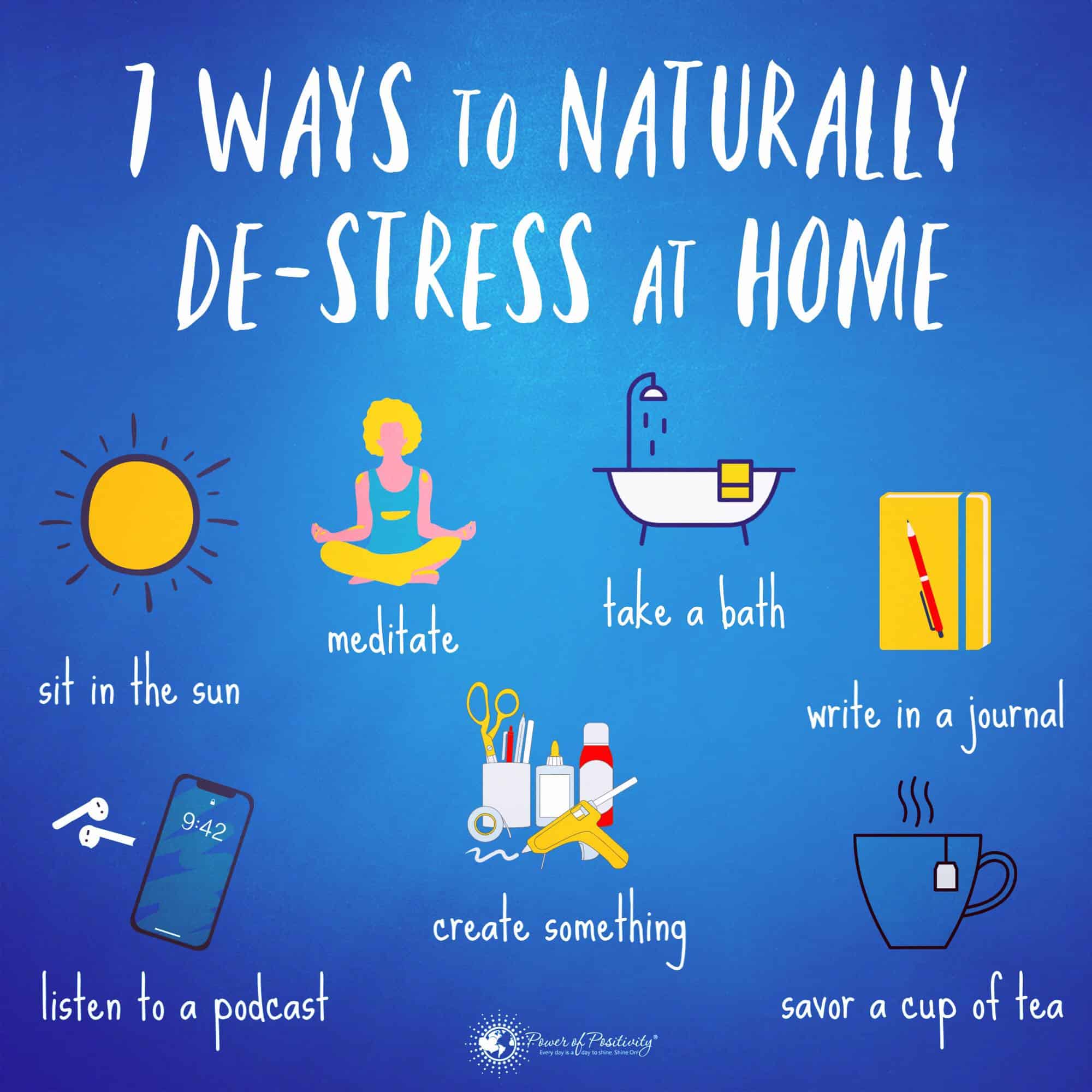Stress is your body telling you that something is wrong, though it can’t quite figure out what. In response to that, the release of stress hormones in the body can trigger a lot of different feelings and urges that aim to solve the perceived problem. The result of this scenario can be emotional eating.
One of these urges that can be triggered is craving for certain kinds of food, especially ones with high-calorie counts. Giving in to those urges can result in worsened health and even more stress in the long run – so how can you fight them? Here’s how a dietician reveals nine ways to combat emotional eating during stressful times.
1. Understand Why You Emotionally Eat
Emotional eating doesn’t happen without cause. An emotion is pushing you to feel the need to eat in response to stress, even when you don’t need to. Understanding the root cause of a problem like this is pertinent to preventing its recurrence.
To try and determine the root of emotional eating, do the following:
· Check In
If you notice you’re eating too much or too often, stop and take a minute to think about it. Are you hungry? Do you lack a specific nutritional component?
· Pre-Eating Awareness
Before you dig into a meal or snack, pay extra attention to your emotions at the moment. Are you bored? Anxious? Lonely? Are you stressed out? Evaluate the feelings you’re experiencing.
· Guilt and Shame
After overeating, do you experience severe guilt or feelings of shame? You may be experiencing signs of decreased positive thinking – and many other symptoms – that come with disordered eating. If you think you’re struggling with disordered eating, you should speak to a trained mental health professional.
2. Pay Attention To Hunger Cues
To truly begin combating emotional eating, you need to learn to notice bodily cues that indicate what kind of hunger you’re experiencing. Cynthia Sass gives some great insight into that.
Sass is a registered dietitian, Board Certified Specialist in Sports Dietetics, best-selling author (thrice), Executive Health Program nutrition consultant for UCLA, and Certified LEAP Therapist. She has worked with celebrities and appeared on multiple TV shows thanks to her expertise and experience.
According to Sass, you need to begin by tuning into your body. This awareness is so you can check what symptoms you are experiencing that is causing you to feel hungry. Physical hunger manifests with symptoms that are physical, too, like the growling of the stomach or a feeling of weakness. Physical hunger should also be logically proportional – if you just ate an hour ago, you probably aren’t physically hungry.
If you’ve determined that your hunger is emotional or mental, not physical, try and seek one of the four basic emotions that can be causing this reaction. The research defines the four basic emotions as:
- Anger
- Fear
- Happiness
- Sadness
Take note of the emotion that is the very root of your mental hunger. Once you’re able to determine which one is the culprit, you can take steps to address that emotion without the use of food. For example, you might overeat if you are:
- Hungry you can go for some intense exercise.
- Frightened you can go to a safe space.
- Sad you can talk to a loved one.
3. Find The Connections
The next step that Sass recommends is finding the substantial links between your emotions and the food you face. This is about considering why you choose to eat this way. Still keeping the four emotions in mind to help you, start connecting the dots. Try to:
· Ask Yourself Questions
Do you go for certain flavors of foods depending on emotion? Do you go for certain textures of foods depending on emotion? Or, perhaps, do you choose foods that have some basis in nostalgia or memory?
· Keep A Hunger Journal
Use a journal to log your emotions, the feeling of hunger you experience, and what you eat. Remember, this is just a journal – it’s meant as a record that you can reflect on later, not as a motivational or controlling tool to force you into “healthier” habits.
· Test Coping Tools
Once you have enough data in your journal or from asking questions to have definitive links in your mind, try to use your knowledge to devise effective coping mechanisms.
4. Remove Tempting Stress Foods
It’s nice to have a store of snacks in your home, but they can serve as a temptation to you. When you feel emotional hunger, if there are suitable snacks available to munch on, it’s all too easy to open up the cupboard and grab it.
The general concept is that visual exposure to foods with a high caloric content stimulates a portion of the brain called the striatum. The striatum’s function is to modulate impulse control, and its stimulation can cause increased severity of food cravings. This is so prevalent that multiple different studies have shown these results! Here are three of them:
- “Widespread reward-system activation in obese women in response to pictures of high-calorie foods” in Neuroimage (2004). This research paper revealed that changed perceptions in the brain are triggered by high-calorie food images. These changes indicate that the brain begins to associate high positive reward responses with thee kinds of food, contributing to cravings.
- “Differential activation of the dorsal striatum by high-calorie visual food stimuli in obese individuals” in Neuroimage (2007). This study is similar to the previous one – it shows certain parts of the brain lighting up and contributing to cravings just from the act of looking at pictures of high-calorie food!
- “Poor ability to resist tempting calorie-rich food is linked to the altered balance between neural systems involved in urge and self-control” in Nutrition Journal (2014). This study showed how the lack of willpower some face to prevent themselves from consuming high-calorie foods has to do with neural system changes.
While it’s okay to have a treat for yourself now and then, keep in mind that they should be few and far between. You don’t want to harm your mental and physical health due to these actions, and if you have a serious problem with emotional eating, you should opt to keep these snacks at bay.
5. Don’t Eat While Distracted
Sass encourages those who struggle with emotional eating to be mindful and aware during their mealtimes and snack times. So while you’re eating, don’t:
- Check your phone
- Watch TV
- Sit at your computer
- Read a book
Multitasking while eating makes it very easy for you to overeat, as you won’t notice when your physical hunger has faded away, says Sass. If you eat mindfully, you’ll get to pay more attention to cues relating to satiety and fullness.
Research has found that mindful eating has positive effects on your ability to take note of eating patterns, your overall intake of food, and similar factors. You’ll be able to see how much you eat and make adjustments as needed.
6. Learn To Cook
When you cook, you’re able to determine what goes into your food. There are no hidden additives and sneaky unwanted components that jeopardize your diet and health. Cooking also allows you to plan, and in stressful times, it can even be a good way to expend your nervous energy.
A study found that when you make home-cooked meals more often than eating out, you experience the following positive benefits:
- Increased consumption of vegetables and fruits
- A 28% lower chance of being overweight when eating home-cooked food five times weekly, when compared to those eating home-cooked food less than three times weekly
- A 24% lower chance to have excess body fat when eating home-cooked food five times weekly, when compared to those eating home-cooked food less than three times weekly
Another study found that the act of pre-planning meals, which is often necessary for home cooking due to the need to shop for ingredients, can:
- Reduce the risk of obesity
- Help spend time productively and positively.
- Boost the overall quality of your diet
7. Don’t Restrict Food Consumption
If your problem is overeating, then it’s very likely that you have, at some point, been tempted to or even been encouraged by others to constrict your calorie consumption. Yes, you indeed need to eat a properly balanced number of calories, but being too restrictive can be counterproductive. In fact:
- During periods of stress, restrictive dieting can lead to worsened levels of positive thinking, further harming your mental health.
- Restrictive eating can further increase and worsen stress by promoting further production of the stress hormone cortisol.
- Eating too few calories can lead to binges of high-calorie foods.
- Restrictive dieting is actually linked to a higher chance of weight gain and obesity.
8. Learn Portion Control
Alright, so you shouldn’t be too restrictive of calorie counts – but if that’s the case, how can you combat overeating when it stems from an emotional or mental cause? The answer lies in portion control.
With emotional eating, you’re not usually thinking about how much you’re putting into your body. As long as the package, box, or container you’re holding still has food in it, a mix of stress and absent-mindedness can cause you to simply eat the whole thing. You are much more likely to overeat if you don’t pre-portion your food, according to research.
Here are some ways to manage better food portioning:
- Purchase smaller varieties of food, or purchase food that comes separately packaged in handy serving-friendly sizes
- When eating, move your meals or snacks into a bowl, only pouring out enough for one serving.
- Separate snacks into small containers, with each container holding one serving of them
9. Keep Yourself Hydrated
Everyone talks about staying hydrated. That’s because it is that important! Drinking enough fluids every day is crucial to organ function and helps your body chug along correctly and healthily.
Chronic dehydration can be a big contributing factor to overeating. A lack of hydration can sometimes be mistaken for hunger as your body tries to sate its “craving” for water. Drinking too little can also cause you to overeat, whereas drinking during or before meals helps you feel fuller. On top of all of that, dehydration is associated with:
- Higher stress levels
- Lowered focus
- Reduced positive thinking
- Worsened eating habits
- Higher obesity risk
Final Thoughts On Some Ways To Combat Emotional Eating During Stressful Times
Emotional eating is fine when it happens once in a blue moon, but if it has become a habit, you need to put a stop to it. Learning to notice the signs of stress that predict emotional eating episodes helps you better manage your responses to it. If you need further help managing stress, don’t be afraid to speak to a mental health professional for aid or advice!
















 Community
Community

